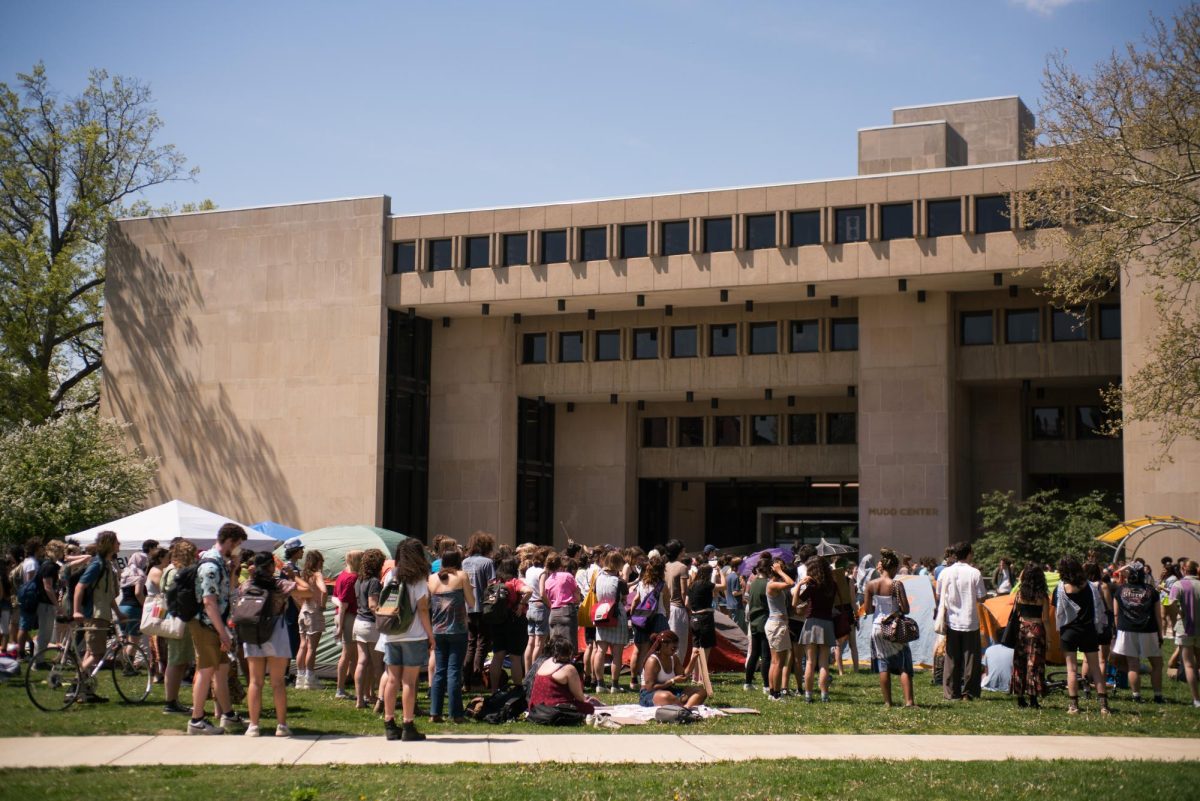At a moment in time in which anti-immigrant policies and sentiments are intensifying, firsthand education in the U.S.–Mexico borderlands has never been more necessary. Yet, even as walls are built and dehumanizing policies are implemented, institutions are retreating and cutting the only programs committed to giving students the experiences and tools they need to fight injustice. The latest loss? Earlham College’s Border Studies Program, after nearly three decades of transformative work, will be shut down indefinitely in June 2025.
Since its launch in 1997, students from colleges and universities across the country have lived and learned on the front lines of the border, first in El Paso and Ciudad Juárez until 2008, then in Tucson, another crucial site of violent policy enforcement and unrelenting border activism. The BSP is the only program of its kind, offering an immersive, semester-long experience. Other border programs last only one to 14 days, giving students little time to understand the complexities of the region. Over the past 27 years, the BSP has prepared hundreds of students to engage with migrant justice, Native sovereignty, and environmental devastation, equipping them with firsthand knowledge of the border’s realities. For those who have participated, the BSP is far more than an average study away program — it’s an experience that profoundly altered their worldviews.
“Not many experiences can do that in just 16 weeks,” Maoli Quevado, Earlham student and member of the fall 2024 cohort, said.
Students gain awareness and a personal stake in the realities that they are learning about through living with Spanish-speaking host families, working for various grassroots organizations in the area, and traveling across the border to meet community partners and scholars.
“To be able to understand, you have to learn the whole truth, not just part of it,” Hunter Lange, another student from the fall 2024 cohort, said.
Lange cited Tucson as an extraordinary location for this work. This is due to its deep history of activism and ability to give students the opportunity to witness and participate in movements that continuously refuse to be silenced. This is precisely why cutting the program is a devastating move.
“The border has been my most formative teacher,” Kate Morgan, the BSP’s lead and advocacy coordinator at humanitarian aid group No More Deaths said. “To end [the] BSP now is a grave mistake.”
The BSP does more than educate; it cultivates future advocates, journalists, policymakers, and educators, many of whom have gone on to work in migrant justice and immigration law. Ending it does not just eliminate an academic program, it limits an entire network of informed, engaged individuals who challenge the systems that uphold border violence.
Earlham College has cited financial constraints as the reason for cutting the BSP, but as Morgan put it, “None of us doubt that the current political climate didn’t also weigh in on Earlham’s decision.”
The move follows an increasing national pattern in which universities, under financial and political pressure, are divesting from programs that challenge dominant narratives about social justice, state-sanctioned violence, and immigration policies. Historically, conservative lawmakers have targeted university faculty and programs that engage in critical scholarship on race, colonialism, and social justice. In today’s political climate, with legislative bans on DEI initiatives and political attacks on ethnic studies, higher education is facing increasing pressure to overhaul learning, particularly when it comes to immigration. Given these conditions, it’s not difficult to see why an institution might view a program like the BSP, with initiatives that directly expose students to the realities of U.S. border enforcement and the communities resisting it, as a liability.
However, while financial struggles in higher education are growing, cutting a program as
unique and influential as the BSP is a shortsighted decision that directly undermines Earlham’s promoted values of social justice and global engagement. Institutions everywhere are experiencing declining enrollment, rising operational costs, shrinking endowments, and post-pandemic losses, leading many to prioritize programs that generate financial returns over those that uplift experiential learning and critical thinking. Eliminating the BSP raises bigger questions: What kind of education do colleges value? What are they willing to sacrifice in the name of profit?
The disappearance of the BSP is devastating and, more broadly, it reflects an alarming shift in higher education, where financial concerns and political pressures take priority over transformative learning. At a time when understanding the realities and resistance of the borderlands has never been more critical, institutions should be expanding, not eliminating, opportunities for students to engage with these realities and bring the lessons of community-based justice from the border back to their home institutions. If colleges claim to value social justice and global engagement, they must commit to supporting programs like the BSP, which turns those principles into action. It isn’t just what kind of education institutions value, it is what kind of future they invest in through their decisions. Cutting the BSP sends a clear message: critical thinking and direct engagement with social justice are expendable. We cannot afford to let that be the case.








